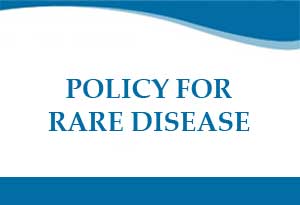- Home
- Medical news & Guidelines
- Anesthesiology
- Cardiology and CTVS
- Critical Care
- Dentistry
- Dermatology
- Diabetes and Endocrinology
- ENT
- Gastroenterology
- Medicine
- Nephrology
- Neurology
- Obstretics-Gynaecology
- Oncology
- Ophthalmology
- Orthopaedics
- Pediatrics-Neonatology
- Psychiatry
- Pulmonology
- Radiology
- Surgery
- Urology
- Laboratory Medicine
- Diet
- Nursing
- Paramedical
- Physiotherapy
- Health news
- Fact Check
- Bone Health Fact Check
- Brain Health Fact Check
- Cancer Related Fact Check
- Child Care Fact Check
- Dental and oral health fact check
- Diabetes and metabolic health fact check
- Diet and Nutrition Fact Check
- Eye and ENT Care Fact Check
- Fitness fact check
- Gut health fact check
- Heart health fact check
- Kidney health fact check
- Medical education fact check
- Men's health fact check
- Respiratory fact check
- Skin and hair care fact check
- Vaccine and Immunization fact check
- Women's health fact check
- AYUSH
- State News
- Andaman and Nicobar Islands
- Andhra Pradesh
- Arunachal Pradesh
- Assam
- Bihar
- Chandigarh
- Chattisgarh
- Dadra and Nagar Haveli
- Daman and Diu
- Delhi
- Goa
- Gujarat
- Haryana
- Himachal Pradesh
- Jammu & Kashmir
- Jharkhand
- Karnataka
- Kerala
- Ladakh
- Lakshadweep
- Madhya Pradesh
- Maharashtra
- Manipur
- Meghalaya
- Mizoram
- Nagaland
- Odisha
- Puducherry
- Punjab
- Rajasthan
- Sikkim
- Tamil Nadu
- Telangana
- Tripura
- Uttar Pradesh
- Uttrakhand
- West Bengal
- Medical Education
- Industry
Govt has formulated national policy for rare diseases: Nadda

New Delhi: Union Health Minister J P Nadda today said the government had formulated a national policy for "rare diseases", while asserting that the process of preparing a registry of such diseases was already initiated.
He also said full support from the government to provide cost-effective management and investigation facilities to the patients suffering from rare diseases would be provided.
A newsletter published by the "Indian Organisation of Rare diseases" was also released on the occasion.
Noting that it was an irony that the "rare diseases" were rarely discussed, Singh pointed out that the reason for this was that the healthcare system of the country was preoccupied with more prevalent diseases, while these "rare diseases", usually genetic or existing from the birth, had a prevalence of hardly about seven per cent.
He said most of the literature available on these diseases was written by Western authors.
Even the definition was based on Western inferences, like in the USA, a disease was said to be "rare" if it affected less than two lakh people, while in Europe, it was categorised as a "rare" disease if it affected not more than five persons per 10,000 people, Singh said.
"Therefore, there is a dire need of compiling the Indian data for these diseases, based on the epidemiological, phenotype and other factors peculiar to India," he added.
Singh said in the larger perspective, some of the diseases, which were rare in India till about three decades ago, had suddenly become widely prevalent throughout the country.
Medical Dialogues Bureau consists of a team of passionate medical/scientific writers, led by doctors and healthcare researchers. Our team efforts to bring you updated and timely news about the important happenings of the medical and healthcare sector. Our editorial team can be reached at editorial@medicaldialogues.in.


